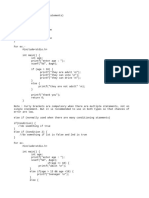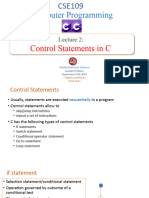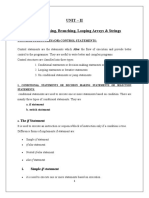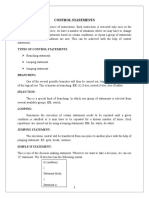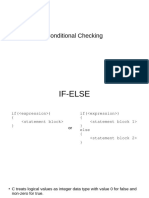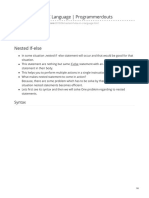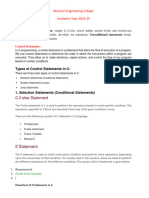0% found this document useful (0 votes)
7 views4 pagesConditional Statements
The document explains conditional statements in programming, specifically focusing on 'if', 'else', 'else if', and 'switch' statements. It provides syntax examples and C code snippets demonstrating how to use these statements to control the flow of execution based on specified conditions. Additionally, it includes a C program example for calculating a student's grade based on their marks.
Uploaded by
pra605039Copyright
© © All Rights Reserved
We take content rights seriously. If you suspect this is your content, claim it here.
Available Formats
Download as DOCX, PDF, TXT or read online on Scribd
0% found this document useful (0 votes)
7 views4 pagesConditional Statements
The document explains conditional statements in programming, specifically focusing on 'if', 'else', 'else if', and 'switch' statements. It provides syntax examples and C code snippets demonstrating how to use these statements to control the flow of execution based on specified conditions. Additionally, it includes a C program example for calculating a student's grade based on their marks.
Uploaded by
pra605039Copyright
© © All Rights Reserved
We take content rights seriously. If you suspect this is your content, claim it here.
Available Formats
Download as DOCX, PDF, TXT or read online on Scribd
/ 4










